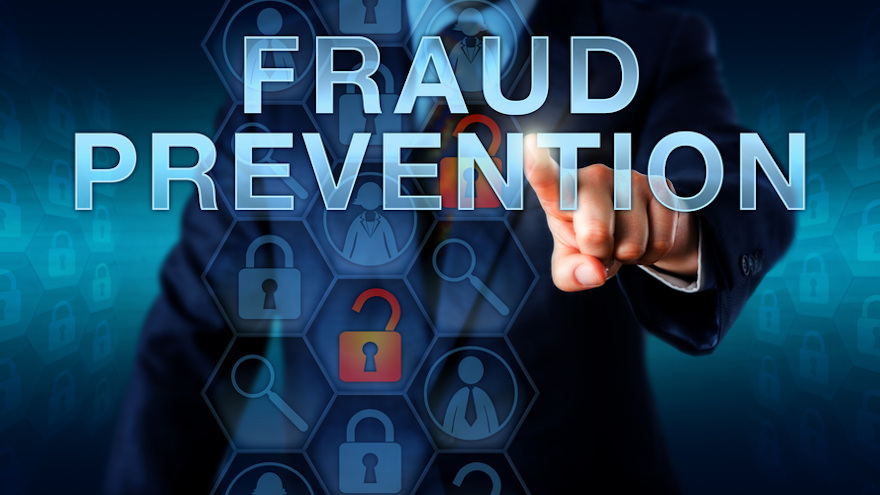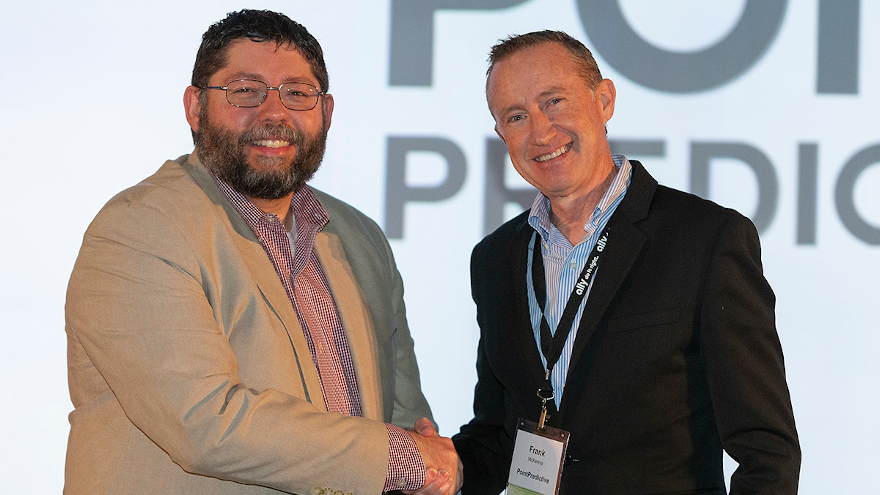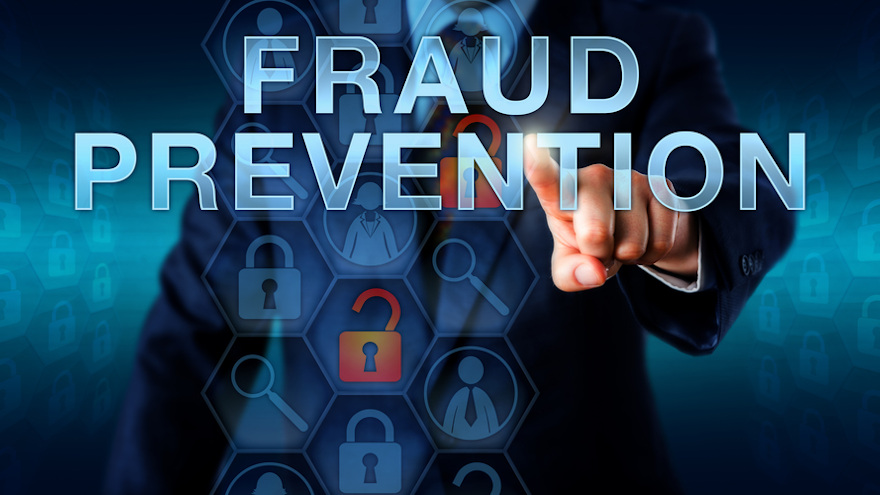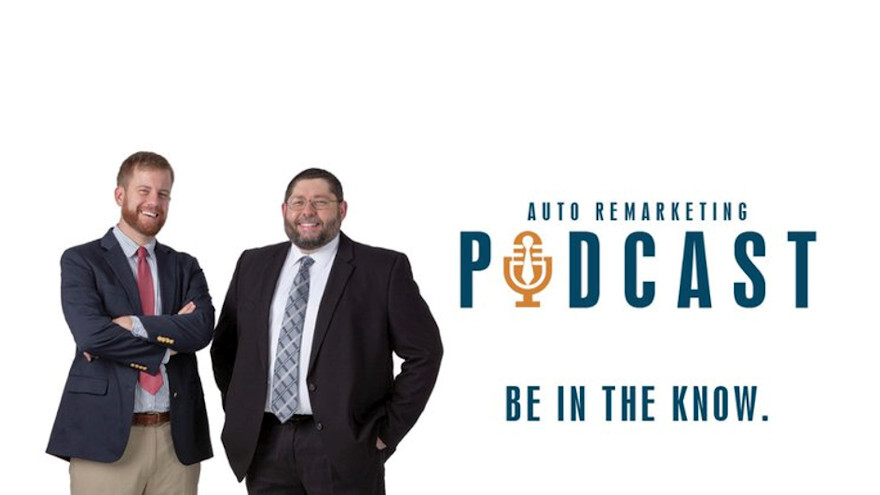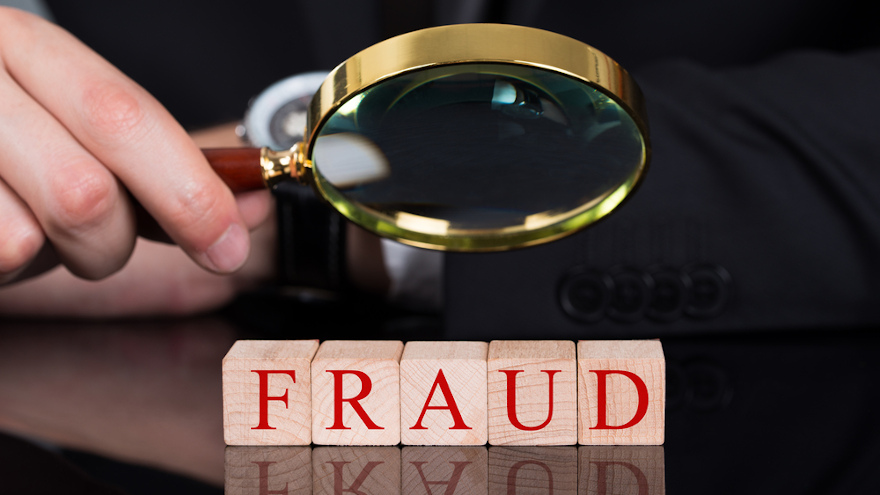Synthetic identity fraud is an issue that has grown in complexity over the years and continues to be problematic with auto dealers and lenders alike. Because of its complex nature, The Federal Reserve reported recently that experts suggest a “comprehensive approach” for ongoing risk mitigation.
The Federal Reserve report cited data that shows synthetic identities are found in between 0.3% and 0.6% of new payment accounts. What’s more, the rate of approved accounts opened to an individual with a synthetic identity could be as high as 2.7% of all new accounts for some lender institutions.
Synthetic identities can be detrimental to a financial institution’s rate of losses, as well as the severity of loss. The report found that synthetic identities makeup just over 20% of all losses in a given loan portfolio even though the identities and accounts comprise just under 1% of all loans.
What is synthetic identity fraud?
Synthetic identity fraud is typically a result of fraudsters using a combination of fictitious information in collaboration with data from an actual person, or it can be completely fabricated information. Fraudsters literally create new personas on the backs of real individuals, such as the creation of a false person with a new name that has an actual social security number or an address from a real person.
This type of fraud can be difficult to spot, particularly in a digital or automated world. It often goes unnoticed until it is too late and multiple accounts have been opened with a single falsified identity, which can be particularly painful for all involved.
How does synthetic identity fraud work?
Once a fraudulent individual creates a fake persona and identity, they move to apply for additional or new lines of credit on an auto loan tied to that identity. During this time, the individual accumulates more purchases on their total line of credit while avoiding their payment obligations. Often, by the time the lender notices the problem, the fraudster has disappeared.
When lenders discover the potential fraud, many will investigate to determine if the “right” due diligence was performed to identify the consumer at the dealer. It’s not uncommon for lenders to ask for buy-backs, particularly when there are repeated cases. If a dealer cannot document the process they followed, they run the risk of being held liable for the entire fraudulent amount and potentially losing lender relationships. Ultimately, everyone involved feels the impact to their bottom line.
Impact on the auto industry
Even with more awareness in the industry in recent years, synthetic identity fraud continues to pose great challenges to the auto industry. According to Equifax Data and Analytics, just within a year’s time 456,000 accounts were identified as potential synthetic identity fraud, which equates to an average of 4,000 accounts per major auto lender.
What’s more, this represents a bad balance per account of $15,000, which translates to a potential loss of more than $768 million to the auto lending industry.
How can dealers and lenders work together?
Dealers and lenders are now looking for solutions to help fight back and keep up with the sophistication of these fraudsters. With COVID-19 creating more opportunities for online shopping and loan approvals, it’s more important than ever to have processes and tools in place to protect all parties. A critical first step is to leverage highly sophisticated, proactive data and technology solutions to help identify fraudulent activity even before it begins. This technology scans data and information on individuals before a deal is completed so that everyone involved can ensure the person sitting at the dealership – or in front of a computer at home — is exactly who they say they are. Equifax makes synthetic identity alerts available to lenders, technology platforms and dealers.
During the continued COVID-19 pandemic, fraudulent activity has the potential to be an elevated threat. With the increased emphasis on contactless and online shopping for vehicles, fraud alerts can prove greatly beneficial for lenders and dealers to spot inaccuracies during the online loan application.
Synthetic identity fraud is a growing problem today for lenders across the entire automotive spectrum. It is important to have thorough training for all employees to have a higher level of awareness for the potential for synthetic identity fraud. While instincts are important, where people pay close attention to an application that doesn’t seem right, it’s even more critical to have access to the right tools and sophisticated technology that can help lenders spot synthetic identity fraud before it happens.
As senior vice president and general manager, Byron McDuffee leads Equifax's Automotive Services team. In this role, he provides strategic direction in aligning the Equifax automotive solutions team with the company’s broader vision for business transformation and program evolution, enabling automotive dealers, lenders and industry partners to maximize revenue potential.
Just like Ponzi schemes haven’t completely ruined the activities and benefits of investing, let’s hope this recent incident of malfeasance in connection with fraud prevention doesn’t submarine the great progress made by a host of experts and fintech firms.
To recap, the incident is what Audrey Strauss called, “the proverbial fox guarding the henhouse.”
Strauss, who is the acting U.S. Attorney for the Southern District of New York and William Sweeney Jr., the assistant director in charge of the New York Field Office of the FBI last week announced charges against Adam Rogas, the co-founder and former chief executive officer, chief financial officer and member of the board of directors of Las Vegas-based cyberfraud prevention company NS8.
Rogas was charged in a complaint in Manhattan federal court with securities fraud, fraud in the offer and sale of securities and wire fraud. Officials alleged that Rogas used fraudulent financial data to obtain more than $123 million in financing for NS8, of which he personally obtained approximately $17.5 million.
“As alleged, Adam Rogas was the proverbial fox guarding the henhouse,” Strauss said in a news release. “While raising over $100 million from investors for his fraud prevention company, Rogas himself allegedly was engaging in a brazen fraud. Today’s arrest of Rogas ensures that he will be held accountable for his alleged scheme.”
Sweeney Jr. added, “It seems ironic that the co-founder of a company designed to prevent online fraud would engage in fraudulent activity himself, but today that’s exactly what we allege Adam Rogas did.
“Rogas allegedly raised millions of dollars from investors based on fictitious financial affirmations, and in the end, walked away with nearly $17.5 million worth of that money,” Sweeney Jr. said. “Within our complex financial crimes branch, securities fraud cases remain among our top priorities.
“We’ve seen far too many examples of unscrupulous actors engaging in this type of criminal activity, and we continue to work diligently to weed out this behavior whenever and wherever we find it,” he said.
The colorful language from these federal officials is quite striking and appropriate. A good portion of the dialogue that happened during the Automotive Intelligence Summit revolved around fraud prevention such as individuals inflating income levels or online perpetrators creating synthetic identities to secure financing for vehicles that end up being shipped to places even most skilled skip-tracers and investigators struggle to find.
When this Department of Justice announcement arrived, I soon reached out to Frank McKenna, who is the chief fraud strategist and co-founder of AI firm Point Predictive, which helps auto lenders stop fraud, improve pull through and increase profitability by powering trust in lending. Point Predictive was one of the first Emerging 8 honorees highlighted during the Auto Intel Summit and Auto Fin Journal.
McKenna examined the case and offered this explanation for how this incident might have happened.
“It’s hard to believe that investors could have valued the company at $400 million by relying so heavily on bank statements and financial documents from Adam Rogas. But that appears to be what happened here,” McKenna told me via email.
“He was able to take the companies bank statements which showed the company had about $46,000 in it, and alter the balances to make it appear the company had over $40 million in it. He also created fictitious deposits showing millions of dollars in revenue from customers, when the real revenue was only thousands,” McKenna continued.
NS8, based in Las Vegas, is a cyberfraud prevention company that developed and sold electronic tools to help online vendors assess the fraud risks of customer transactions.
McKenna also offered an eloquent response about how the fraud-prevention industry should proceed in light of these allegations.
“I think it is a good lesson for us all. You can’t really rely on bank statements and paystubs as the ground truth when lending money,” McKenna said. “If something doesn’t make sense and seems off, there is probably fraud involved.
“In the end, they are victims of his fraud, and it’s a real shame. Hard-working and innocent employees lost their jobs in the middle of a pandemic, and investors will likely lose millions of dollars,” McKenna added.
To Point Predictive and the other firms and experts dedicated to curbing fraud, a salute to each of you and a reminder that nefarious incidents like this one are an outlier and not commonplace. And as Frank referenced, we all can collaborate to ensure it stays that way.
Nick Zulovich is senior editor of Auto Fin Journal and can be reached at [email protected].
Auto-loan fraud is a significant challenge to the auto-finance industry — one that actually grew during the pandemic. Auto-finance fraud reportedly cost the industry $7 billion in 2018 alone and resulted in damage to business reputation and compliance issues. Better regulation and enforcement are helping to curb the problem but either means more difficult compliance issues or is often too little, too late.
Fortunately, the technology exists that can help auto lenders reduce loan fraud with the additional benefit of lower costs, faster time to funding and other advantages. Below, we’ll look at how digital tools reduce the different types of fraud.
The growing peril of auto loan fraud
Research conducted by the Aite Group found that synthetic identity fraud alone is culpable for $50 billion of industry losses. Considering that many lenders often refrain from reporting all instances of fraud, and some cases are concealed due to false reporting of identity theft, the actual number may be even higher.
Auto loan schemes can be quite costly to lenders that suddenly find themselves saddled by unpaid balances and non-compliance fines. They are also costly to future customers, who may have to pay higher rates to compensate for losses on the auto lender’s margins. Beyond the steep monetary penalty, fraud negatively impacts lenders’ image and reputation as stories of schemes go to press.
Here are some of the most pervasive types of fraud auto lenders have had to struggle with during recent years:
— Document fraud: When sending stips to apply for a loan, a borrower with bad credit exaggerates their income, provides a false address, and invents employer information to obtain a loan they wouldn’t normally be qualified for.
— Classic identity theft: Fraudsters apply for auto loans using identity cards or documents stolen from individuals with high credit scores and apply for a loan out under their name.
— Synthetic identity theft: Bad actors invent social security numbers (or steal children’s social security numbers) to build new credit profiles. While individuals can engage in this type of identity theft, it is more commonly encountered among professional crime rings. According to some estimates, 80% of all credit card losses are due to synthetic fraud.
As auto loan fraud scams become increasingly professionalized and sophisticated, auto lenders need to stay one step ahead. Fortunately, technology can make it easier to not only catch but actively prevent fraud attempts.
Faster and better identity verification
Making a copy of a customer’s ID is standard practice — but the truth is that this is of little value for auto lenders who are dealing with a fraudster. Either they will use a valid ID card owned by someone else or pay very little for a very convincing replica. By the time the information is checked and verified — if at all — the sale and loan might have already been completed and the car driven off the lot.
To prevent this, auto lenders can use digital identification and verification tools that can determine within seconds whether the person applying for the loan is in fact the person they claim to be or, in the case of synthetic fraud, a real person.
Many of the most advanced solutions use facial recognition technology to compare an applicant’s photo ID with a live picture they must submit of themselves. The solution analyzes elements in the live photo such as distance between facial features, skin texture, and distinct marks and compares it to the image in the photo ID. If there is a match, the ID is considered verified.
Effective ID verification prevents bad actors from getting into the system in the first place and may even have the potential to deter future fraudsters.
More efficient document collection
At first, more efficient document collection sounds like a time-to-funding issue — and it is — but it also means that documents and stips that are collected can be quickly digitalized using OCR technology and then analyzed using sophisticated algorithms that will flag potential issues such as employment or income fabrication.
The speed and accuracy elements are critical here. Auto lenders need to approve loans quickly to remain competitive which means document or stips collection and verification can be a real business blocker if done by traditional, manual means. By digitalizing the process and make use of proven technologies that can give the green light on most loans much faster, loan officers can focus their expertise and time on loans that the system flagged as being most likely to be fraudulent.
Advanced digital signatures
Wet signatures are ripe for abuse. Fraudsters can easily prey on individuals who have simplistic, inconsistent, or otherwise easily forged signatures and steal their identities. Furthermore, they can tamper with signatures in existing documents, and it can be difficult to prove any of this in a court of law.
Digital signatures have an edge here because they are based on cryptology principles with a private key and public key. A person’s digital identity is electronically bound to a particular electronic signature and the mathematical algorithm that’s derived from it. Furthermore, it comes with a tamper-proof paper trail, and thus cannot be altered either in transit or after its delivery is complete.
The bottom line
Auto loan fraud may be growing in complexity, but so are the technologies that are being created to combat it. Auto lenders no longer have to rely on time-consuming manual paperwork to prevent fraudsters. By digitizing the loan application process, compliance and turnaround time increase in tandem.
Gilad Komorov is chief revenue officer for Lightico, one of this year’s Emerging 8 honorees highlighted by Auto Fin Journal.
Fraud is continuing to surface in many ways, especially nowadays since so much activity is happening online because of the coronavirus pandemic.
Chris Ryan, senior fraud solutions business consultant at Experian, described the most noteworthy incident he’s seen during the past few weeks during this special episode of the podcast. It involved email and what seemed like kind gestures to maintain a company’s workforce morale.
To hear the whole story, click on the link available below, or visit the Auto Remarketing Podcast page.
Download and subscribe to the Auto Remarketing Podcast on iTunes or on Google Play.
FRISS, a company dedicated to combating insurance fraud using innovative IT software, and the National Insurance Crime Bureau (NICB), a not-for-profit organization dedicated exclusively to fight insurance fraud and theft, recently announced the two organizations entered a strategic partnership.
NICB gathers, analyzes and disseminates information to support its member companies in detecting fraud. Officials said this partnership provides yet another innovative way for mutual members of NICB and customers of FRISS to access and incorporate NICB information to detect fraud.
“We see this partnership as a positive step in making sure our members and FRISS customers have the tools needed to combat the challenges associated with insurance fraud,” NICB president and chief executive officer Joe Wehrle said.
“Building strategic partnerships like this reinforces our commitment to helping our members with cutting edge technology. It’s another example of why NICB continues to be the insurance industry thought leader in the fight against insurance crime,” Wehrle continued.
FRISS was founded in 2006 when co-founders Jeroen Morrenhof and Christian Van Leeuwen decided it was possible for technology to help combat insurance fraud. Since then the solution has been implemented more than 175 times at carriers worldwide.
The FRISS Score can alert insurers in real time to potentially fraudulent claims. Actionable insights and indicators are displayed to ensure the score is accurate and transparent, and that the case can be handled properly and efficiently.
The FRISS Solution can be integrated with any modern or legacy core system.
“Insurance fraud has a profound societal impact,” Morrenhof said. “It doesn’t just hurt insurers. In fact, the average family pays hundreds more in premiums than they should each year, all because of dishonest customers.
Our mission at FRISS is to make insurance more honest and partnering with NICB brings us a giant step closer to helping carriers instantly identify claims that are likely to be fraudulent,” Morrenhof continued. “They can now execute smarter investigations quicker, deny payments on fraudulent claims and provide their honest clients with a supreme customer experience.”
The company went on to note this partnership will allow insurers to seamlessly incorporate NICB data into their automated fraud scoring process, ensuring that cases with ties to known fraud can be caught and investigated immediately.
This summer, Experian and Credit Bureau Connection (CBC) had the chance to celebrate for a few moments about how their collaboration helped to stop a southern California fraud ring.
After a few handshakes, leaders of both companies told Auto Fin Journal during a recent phone conversation that their work is far from being completed and that ongoing collaboration would be crucial to notching more anti-fraud victories.
First, here’s a brief recap of what happened.
CBC indicated an individual attempted to purchase a luxury vehicle from a southern California dealership. During the process, CBC’s solution alerted dealership personnel of a potential threat. The information delivered then was shared with local authorities, and the thief was arrested.
The company said this development eventually led to the arrest of another individual linked to the same theft ring.
“Of course, it’s always satisfying to score a win for the good guys,” Credit Bureau Connection chief operating officer Darin Larsen said. “As a provider of these ID verification products and tools to our auto dealer clients, we’re obviously not always made aware of the instances or situations when our products and services can actually prevent fraud or theft. A lot of times on the prevention side, it is preventative so it doesn’t go much further than that.
“But in this case, it was obviously very rewarding in that we got the actual feedback from the customer and it reaffirmed that our products and services are truly performing as we expect to help our customers. We also know that the synthetic ID fraud situation is happening more and more frequently. This reaffirms our product and our position in the marketplace to start dealers with that type of solution,” Larsen continued.
Experian’s data and technology provide some of the fuel for CBC’s solution to function. Chris Ryan, Experian’s senior fraud solutions consultant, shared what this summer’s development meant to his team.
“From a prevention standpoint, often it’s hard to see the outcome of indicating when there’s risk,” Ryan said. “Obviously, we build these tools based on historical data to predict things that we’ve known in the past that have gone bad. But in use most of the time, you’re trying to stop these things before they happen. And as a result, it’s not often that you get to see this sort of live kind of validation that really was someone with ill intent, and they were really perpetrating the kind of the kind of crime we were trying to prevent.
“It’s incredibly satisfying to have partners like Credit Bureau Connection that helped us put these products in the market. It just it makes us feel good about what we’re doing and our mission and experience and to know that there’s real value for people stopping real crimes from happening,” Ryan went on to say.
In order for more victories like this one, both Experian and CBC emphasized that their collaboration must continue, and other segments and participants in the auto-finance industry have to join forces, too.
“Obviously, the collaboration effort is more important than ever,” Larsen said. “The bad actors and fraudsters are becoming more and more sophisticated, and it really takes a completely collaborative effort not only from, in this case, the data provider Experian, that has the horsepower behind the data and coupled with our solution but even at the auto dealer level, and the auto finance company level, to make sure they’re trained, they’re up to speed, they have processes in place to not only recognize when these alerts that the software and the data are providing them to be able to handle those properly and to deal with them properly.
“It really is a completely collaborative effort between the service providers, the auto dealers, the data providers and everybody in the chain,” he added.
Ryan chimed in saying, “The bad guys are certainly collaborating.
“There’s sort of two there’s sort of two levels of this type of crime,” he continued. “One is the person who figures out how to create a synthetic identity or monetize a synthetic identity. And they’re doing that for their own short-term financial gain. But there’s a whole black market, if you will, where the secret to how to do that is something that’s monetized as well.
“A bad guy that figures out how to commit this type of crime isn’t just profiting off the crime,” Ryan went on to say. “They’re profiting off the knowledge of how to commit the crime and they’re collaborating and sharing that type of information on their side. So it’s critically important that industry responds in kind and share what’s working on our side and share those defenses because this certainly isn’t the last time we’re going to see someone attempting to do this.”
A member of the inaugural Emerging 8 is continuing to roll out new solutions.
PointPredictive recently launched what it called Outsourced Fraud Mitigation, a service that can help finance companies bolster their fraud defenses by leveraging PointPredictive’s fraud experts and artificial intelligence technology.
The company explained this service can give finance companies turnkey access to PointPredictive’s full suite of scoring solutions along with fraud experts that manually review applications to identify fraud before loans are funded. It also can enable finance companies to quickly establish a state-of-the-art fraud program with no investment in IT or human resources combined with PointPredictive’s fraud guarantee that ensures they only pay for fraud they are able to stop from funding.
“Fraud moves quickly and lenders can lose millions of dollars each month,” PointPredictive chief fraud strategist Frank McKenna said in a news release. “One of the biggest barriers lenders face in stopping fraud is their ability to launch a fraud program — implementing fraud scanning technologies and then hiring and training experts to use those technologies to identify and prevent fraud efficiently.
“With this new service, we eliminate all of that work for lenders by providing access to our platform and experts, allowing them to stop fraud immediately with no up-front investment,” McKenna continued.
As part of the subscription service, finance companies can establish a secure link to PointPredictive’s scoring platform that can scan each application with the full suite of PointPredictive machine learning solutions for risk, including:
— Auto Fraud Alert
— IncomePASS
— Synthetic ID Alert
— DealerTrace
Any risk alert that is generated is sent to a PointPredictive fraud analyst for a comprehensive fraud review. The fraud analysts can access a variety of third-party and public records data sources as well as PointPredictive’s proprietary consortium data in order to assess the likelihood of fraud.
When that fraud is discovered and validated, the finance company is notified with a comprehensive narrative and alert report directly from the fraud analyst outlining their findings. Armed with that additional information, finance companies can then intervene in the funding process to request additional information from consumers or dealers related to the risk areas identified for that contract.
“The fraud analyst team at PointPredictive is remarkably effective,” PointPredictive chief executive officer Tim Grace said. “In the last six months, our fraud analysts have confirmed more than 1,200 suspicious fraud loans for lenders and helped prevent millions in losses before those loans were funded.
The team has also identified a new fraud ring currently operating in the U.S. that is affecting multiple lenders; the team has been able to alert lenders to applications affiliated with that fraud ring proactively,” Grace went on to say.
The fraud analyst team is recruited and managed by McKenna, who has worked with more than 250 lenders, banks and finance companies to operationalize their fraud departments and strategies, and trained hundreds of fraud analysts across the country. Each analyst goes through a rigorous training program to learn how to detect the subtle patterns of fraud leveraging proprietary techniques and data analysis methods.
For more information on Outsourced Fraud Mitigation from PointPredictive, contact the company at [email protected].
Sagent Lending Technologies and Experian are collaborating to help finance companies make sure applications coming through dealership websites or showrooms are in fact from the individual they came to be.
Last week, Sagent announced it has teamed with Experian to integrate the company’s fraud and identity solution, Precise ID, into its auto loan origination system (auto LOS). As a result of the integration, the company explained that finance providers using Sagent’s Auto LOS System now will be able to streamline the identity verification process, more accurately detect fraudulent behavior, approve more contracts and create an improved borrower experience all while making quicker loan and lease decisions at scale.
Experian’s Precise ID, a component of its CrossCore platform, is designed to empower finance companies to use more passive authentication measures and a multi-layered approach to manage fraud risk across the entire customer lifecycle. The solution can enable providers to analyze first- and third-party fraud information and identify any inconsistencies that could indicate fraudulent behavior during the application process.
Additionally, the solutions can strengthen compliance efforts with the USA PATRIOT Act and the FACTA Red Flags Rule by detecting inconsistencies in consumer-provided application information and screening against OFAC and other high-risk alerts.
“Sagent’s commitment to delivering agile, compliant, scalable and configurable solutions to lenders has been further strengthened through the integration of Experian’s Precise ID. Our growing suite of alternative data integrations protects lenders from fraud while streamlining the entire loan or lease process for lenders, dealers and borrowers,” Sagent Lending Technologies chief product officer Charles Sutherland said in a news release.
Kathleen Peters, Experian’s senior vice president and head of fraud and identity, added, "With so many compromised identity records, we believe the best defense against fraudulent behavior is a multi-layered approach that leverages advanced data and technology.
“Fraud is becoming more of a focal point within the automotive industry and with access to analytical capabilities, lenders will be better positioned to assess fraud risk quickly and accurately, make the right lending decisions and create an improved experience for prospective borrowers,” Peters went on to say.
For more information on Sagent’s auto LOS system, visit this website. To learn more about Experian’s Precise ID solution, go to this website.

